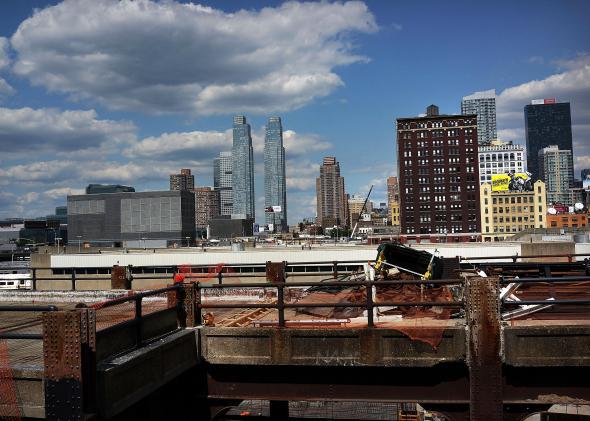If you haven’t read the piece already, New York magazine takes a fascinating look at the New York City real-estate market in its latest issue. “Stash pads,” as the magazine dubs them, are the hot new Swiss banks for wealthy foreigners. Aided by layers of shell corporations, as well as brokers and lawyers who turn a blind eye, foreign money has flowed out of deep pockets abroad and into luxury condos and apartments in New York. Once the funds find a home, New York explains, they can be nearly impossible to spot for what they are:
There is nothing illegal—at least from the destination nation’s perspective—about sending money from an anonymous offshore bank account to purchase property in America. On the contrary, it’s an everyday occurrence. That is precisely why experts say that property investment is a favored route for money laundering, a crime that depends on the outward appearance of legitimacy. The laundering process typically happens in stages: Illegal cash enters the world financial system somewhere and is funneled into a maze of accounts and shell companies, a process called “layering.” Finally, at the other end, funds are integrated into a seemingly respectable investment—like a luxury condo.
At the same time as New York real estate has become something of a financial haven for wealthy foreigners, the U.S. has increased pressure on its own citizens to come clean about their finances. On Tuesday, the Foreign Account Tax Compliance Act, a law that the U.S. passed in March 2010, officially took effect. FATCA aims to clamp down on American tax evasion by requiring foreign banks and other financial institutions to report their U.S. account holders to the IRS or face harsh penalties. More than 77,000 have registered with the IRS so far.
In simple terms, FATCA could mean the end of Swiss banks as we know them, rendering obsolete images like the one New York offers of an “anonymous high-net-worth client of Credit Suisse” who took a “remote-controlled elevator” to a “bare meeting room where he and his private banker would discuss his money.” The biggest banks in Switzerland—UBS and Credit Suisse—have already been investigated and fined by the U.S. Justice Department for aiding tax evasion.
FATCA taking effect has hit expats especially hard, which may help explain why a record number of Americans renounced their citizenship in 2013. If that’s the case, maybe their funds will find their way back into the U.S., with the purchase of a nice little pied-à-terre on Central Park West.
